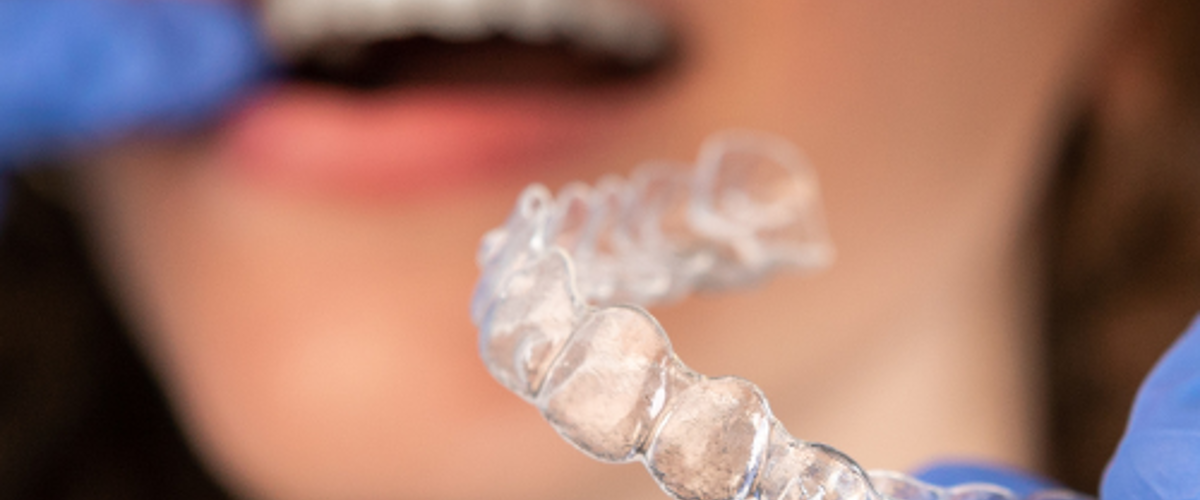| Dental Armour

Dental Splinting for Loose Teeth – How Does it Work?
When we’re growing up as children, it’s of course perfectly normal for us to lose our teeth as we lose our baby teeth and have our adult teeth come in. Loose and wobbly teeth as a child are perfectly normal and are nothing to worry about. Loose teeth as an adult however, is much more concerning.
If you find your tooth, or teeth, becoming loose and wobbly, you can rightfully feel concerned because there is obviously the risk of the tooth falling out. If you find that you have loose teeth, a trip to your dentist is essential. Once there, they may very well recommend a dental splint.
But what exactly is dental splinting for loose teeth and how does it work? Let’s find out.
How adult teeth become loose
We’ll get to dental splinting for loose teeth a little later on, but first off we’re going to look at how adult teeth become loose in the first place.
Adult teeth can become loose for any number of reasons, including the following:
Poor dental hygiene
One common cause of loose teeth in adults is poor dental hygiene. If you fail to brush your teeth regularly and look after them, they could become rotten and decayed. When this happens, the body will essentially reject the tooth/teeth and they will eventually fall out.
Trauma
Sometimes facial trauma can cause teeth to become loose. If a person sustains a blow to the face, either in everyday life or in sports, if the blow is hard enough it could knock a tooth loose.
Gum disease
Gum disease, which may also be caused by poor dental hygiene, can also cause the teeth to become loose and wobbly, this time because the gums which are helping anchor them in place, have eroded away.
Excessive bite force
Known also as occlusal trauma, if the tooth is placed under extreme pressure from a bite force past its tolerance, this will cause it to weaken and become damaged until eventually it becomes loose.
Treatment options for loose teeth
If you have a loose tooth you should speak to your dentist immediately and seek advice about what can be done with regards to a treatment.
As far as which treatments are recommended, this all depends on what is causing your loose tooth in the first place. If the tooth is loose because of an infection, antibiotics may be prescribed to treat the infection.
If the tooth is loose because of trauma, or if it is heavily decayed and is basically dead, the tooth may need to be extracted. In many instances however, a dental splint can be used, which is what we’re focussing on today.
What is dental splinting?
Also known as periodontal splinting, with dental splinting your dentist will join the teeth together using a thin wire reinforced with fibre to hold the tooth/teeth in place and secure their stability.
Dental splinting not only helps hold loose teeth in place, it also helps protect them from damage caused by bruxism (teeth grinding).
The dental splinting procedure
Using a composite material, loose teeth are splinted to secure and stable teeth to hold them in place and prevent them from wobbling and working themselves even looser.
Splinting loose teeth to secure teeth can potentially help the tooth to become stable again, especially if it was loose due to gum disease as once that heals around the tooth, it will help anchor it in place. It also helps to reduce pain and discomfort caused by a loose tooth.
Dental splinting for loose teeth
If you’re wondering whether a loose tooth can be splinted, the answer is obviously yes.
Providing the tooth itself is healthy, if it is loose, it can be splinted and often it will make a full recovery.
How long does a tooth splint stay on?
While each case is different, generally speaking if there are no signs of a bone and/or tooth fracture, dentists recommend leaving a dental splint on for around 2 – 3 weeks.
If there are signs of trauma to the teeth and/or bone tissue, a dental splint should be left on for around 6 – 8 weeks on average.
Book your consultation now
If you’ve found your teeth have become loose and you want to address the issue now, get in touch with the friendly team at Dental Armour.
Whether you’re looking for mouthguards, dental splints, or simply professional advice, we've got you covered.
